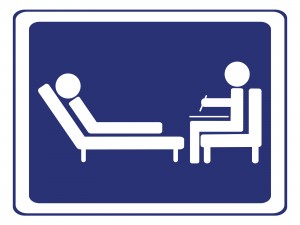Get ready for some significant changes to the litigation of Longshore and Defense Base Act claims. The new Rules of Practice and Procedure for Administrative Hearings Before the Office of Administrative Law Judges will become effective in the immediate future. As such, practitioners, parties, and even experts who testify in Longshore and DBA claims should review the new rules. This link will take you to the Final Rule published in the Federal Register. There are a lot of changes. It is clear that the Department of Labor had one thing in mind when instituting the changes: protection of the integrity of the adjudication process. The rub is that some of the rules may very well result in increased litigation costs and hardships for Longshore and DBA litigants. Perhaps the easiest way to talk about the changes instituted in the new Rules is to talk about categories of changes as opposedRead more
“Delayed Expression” PTSD: Statute of Limitations Kryptonite?
The Longshore and Defense Base Act statute of limitations has a lot of power–like the power to nullify an injured worker’s indemnity benefits claim. But the statute of limitations is not invulnerable. In this post, I am going to talk about a qualifier attached to some Post Traumatic Stress Disorder diagnoses–“delayed expression”–and how that qualifier could affect the Longshore and Defense Base Act statute of limitations. “Delayed Expression” Post Traumatic Stress Disorder: Mental health professionals use the American Psychiatric Association’s Diagnostic and Statistical Manual of Mental Disorders to diagnose mental disorders. The most recent version, called the DSM-5, is a one-stop shop for the criteria needed for a Post Traumatic Stress Disorder diagnosis. In addition to a basic list of diagnostic criteria, the DSM-5 has a section entitled, “Development and Course,” which discusses the length of time that it may take for PTSD to develop. Specifically, the DSM-5 says: PTSDRead more
New Article At Lexis Re: Medical Evidence in Longshore Claims
I follow LexisNexis’s Workers’ Compensation Law Community and check in often. A couple of weeks ago, Lexis posted an article from Yelena Zaslavskaya, the senior attorney for the Office of Administrative Law Judges. The article, entitled “Evaluation and Weighing of Medical Opinion Evidence in Longshore Cases,” discusses the medical evidence that is often presented in Longshore and Defense Base Act claims. Further, the article discusses how judges evaluate the medical evidence, especially where there are conflicting reports. I don’t want to steal any thunder from the LexisNexis article. As such, I encourage you to click on the hyperlinks above and check out the article for yourself. Photo courtesy of Flickr user Chris Potter.
Just For Fun: Strongpoint Law Firm Playing Cards
What client gift is best suited for Strongpoint Law Firm? A pen? A paperweight? How about playing cards? I just received Strongpoint Law Firm’s first batch of playing cards. And as you can likely tell, I am flush with joy over the finished product. (I’ll stop with the bad puns now.) In all seriousness, I am lucky to have great clients–folks that become family over the course of their claim. If the new playing cards make my clients happy, then the cards make me happy, too. As you can tell from the picture, Strongpoint Law Firm represents injured workers and their families in claims arising under the Defense Base Act, the Longshore and Harbor Workers’ Compensation Act, the Jones Act, and in personal injury matters. If Strongpoint Law can help you, contact me (Jon Robinson) immediately. I can be reached by phone at (985) 246-3194, by e-mail at [email protected], orRead more
Service Animal Coverage for Longshore and DBA Claims
Are service animals covered by the Longshore Act and the Defense Base Act as “medical benefits”? If so, what types of service animals are covered? Medical Benefits: To begin to answer the service animal questions, let’s look at Section 7 of the Longshore Act. Section 7 defines an employer’s obligation to pay medical benefits. Pursuant to that statute, the “employer shall furnish such medical, surgical, and other attendance or treatment, nurse and hospital service, medicine, crutches, and apparatus, for such period as the nature of the injury or the process of recovery may require.” See 33 U.S.C. § 907 (emphasis added). For the cost of the medical treatment to be assessed against the employer or its insurance carrier, the medical expense corresponding to the work-related injury must be both reasonable and necessary. That is the general framework for medical treatment. Employers shall provide treatment, but only treatment that is medicallyRead more
What is a Longshore or DBA Impairment Rating Worth?
The Defense Base Act and the Longshore and Harbor Workers’ Compensation Act requires employers and insurance companies to pay benefits to injured employees. Initially, the injured civilian contractor or longshore worker receives temporary total disability benefits. As time passes, the employee may receive different disability classifications. Today’s post addresses the end a DBA or Longshore Act claim, when the employee receives permanent partial disability benefits. In short, I will show you how to calculate the dollar value of an impairment rating. What are Permanent Partial Disability Benefits? There are four types of disability benefits: temporary total, temporary partial, permanent total, and permanent partial. When an employee has reached permanent partial disability, this means: Their overall medical condition has reached a state of medical permanency. This is often referred to a maximum medical improvement, or MMI. They can return to their pre-employment work or the employer has demonstrated the availability ofRead more
How are DBA and Longshore Death Benefits Calculated?
When a civilian contractor or longshore worker dies as a result of their employment, their beneficiaries may be entitled to death benefits. In this post, I examine the methods used to calculate the value of Defense Base Act and Longshore death benefits. I address the importance of the average weekly wage; who may qualify as a beneficiary; compensation rates and cost of living adjustments; and I provide some example death benefits calculations based on hypothetical facts. Keep reading…despite the math. You will see how a death benefits Defense Base Act or Longshore claim could be valued over $1,750,000. Make no mistake: death benefits claims are high dollar, high stakes claims. What Was the Decedent’s Average Weekly Wage? First, start with the decedent’s average weekly wage. Section 10 of the Longshore and Harbor Workers’ Compensation Act provides the statutory requirements for determining a contractor or longshore worker’s average weekly wage. Essentially,Read more
Settlement Money After DOL’s Blessing
Before a claimant gets their money, the Department of Labor must approve the claimant’s Longshore or Defense Base Act settlement. It’s a legal requirement. A claimant will not receive any of the settlement proceeds until the DOL reads and approves the settlement. Essentially, the DOL wants the last say regarding monetary adequacy of the settlement. Recently, the DOL issued OWCP Bulletin No. 14-05. In it, the DOL addressed Section 8(i) of the Longshore and Harbor Workers’ Compensation Act—the Act’s settlement provision—in light of an important decision from the Benefits Review Board, Richardson v. Huntington Ingalls, Inc. Richardson Addresses the Determination of Settlement Adequacy: Here’s a quick history lesson about Richardson. In 2013, a represented claimant and a represented employer got together and negotiated a settlement. They submitted the settlement to the district director for approval, but the district director denied the settlement. He determined that, under the guidelines he wasRead more
Welcome to Strongpoint’s New Website
Hello! My name is Jon Robinson. Thank you for visiting Strongpoint Law Firm. You have arrived just in time for the grand unveiling of the firm’s website and blog, the Longshore & DBA Review. Exciting times, indeed! Hopefully you found this website because you are interested in what I do, what I know, and how I can change your life for the better. So, let me boil down what I do: I help injured people. Plain and simple. Strongpoint Law Firm is not a general practice law firm. I am not litigating claims against insurance companies one day and then writing wills the next. My preference is to practice in four areas of law: Defense Base Act Longshore and Harbor Workers’ Compensation Act Maritime injuries, including Jones Act claims Personal injuries By practicing in specific areas of law, my skills are honed to maximize your recovery. Make no mistake, youRead more
The Supreme Court Refused to Review Lincoln v. Director, OWCP
On October 14, 2014, the Court issued its second Order List for the 2014 term. One of the cases that the Supreme Court denied was Lincoln v. Director, OWCP. Lincoln was an interesting case that involved the attorneys fee provision of the Longshore and Harbor Workers’ Compensation Act (“LHWCA”) and the meaning of the term “compensation.” The facts of Lincoln are fairly straight forward. The employee filed a hearing loss claim on May 24, 2011. Initially, the employer filed a notice of controversion stating that the hearing loss was noise-induced, but it needed additional information to determine the correct disability payment. On June 14, 2011, the district director served notice that the claim was filed. Then, on July 7, 2011, the employer voluntarily paid employee $1,256.84, amounting to compensation for “0.5% [binaural] hearing loss” and the equivalent of one week of permanent partial disability benefits under the maximum compensation rate.Read more
- « Previous Page
- 1
- …
- 4
- 5
- 6
- 7
- 8
- …
- 20
- Next Page »










